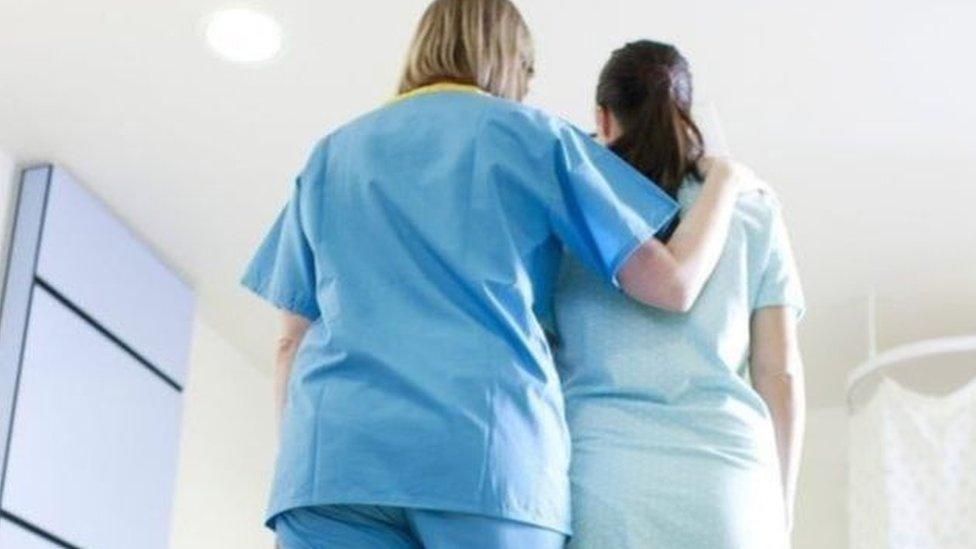Abortion decriminalisation bill tabled in Commons
- Published

Legislation to decriminalise abortion in the UK, including Northern Ireland, has been tabled in the Commons.
Labour MP Diana Johnson's bill passed its first reading by 208 votes to 123.
The bill, which would scrap the 1861 Offences Against the Persons Act, is unlikely to become law in its current form without government backing.
It is one of several UK parliamentary attempts this week to change the law on abortion in Northern Ireland while its own devolved Parliament is suspended.
Abortions in Northern Ireland are currently illegal in all but exceptional medical and mental health circumstances.
The UK government has so far resisted pressure to step in to legislate for reform in the wake of a recent Supreme Court judgment that found the current legal framework incompatible with human rights laws.
In June, a majority of Supreme Court judges said the ban on terminations in cases of rape, incest or fatal foetal abnormality needed "radical reconsideration".
Given that there are no ministers at Stormont due to the power-sharing impasse, pro-choice campaigners have demanded the laws are changed at Westminster.
Ms Johnson's ten-minute rule bill cleared its first parliamentary hurdle and has been scheduled for a second reading on 23 November.
Among the 15 Conservative MPs to back the bill were Equalities and Women's minister Penny Mordaunt, who is also international development secretary, and her deputy Victoria Atkins,
The private member's bill, which would decriminalise abortion across England, Wales and Northern Ireland, is unlikely to have enough parliamentary time to make it onto the statute book.
The Offences Against the Persons Act made abortion illegal in the UK except when there is a risk to the life or health of the mother.
The 1967 Abortion Act in England and Wales provided for exemptions to the 1861 Act, enabling legal abortions, but it has never applied in Northern Ireland.
'Changing attitudes'
Addressing the Commons, Ms Johnson said the aim of her bill was "to stop women facing the criminal courts for decisions about their own bodies".
"The law needs updating to represent the changing attitudes in our society," she said.
As the Northern Ireland Assembly had not sat since March 2017, UK politicians "cannot look away", she said.
But opposing the bill, Conservative MP Fiona Bruce said it would be against "the principle of devolution".
If the UK Parliament intervened, she added, it would "completely undermine the substance and spirit of the Good Friday Agreement".
"It should be up to Northern Ireland to change their abortion law as, when and if they want to," she said.
Downing Street said the prime minister had consistently taken the view that abortion was a matter for the Northern Ireland Executive and best decided by "locally accountable" politicians.
On Wednesday, fellow Labour MPs the government is tabling in response to the ongoing political stalemate in Northern Ireland.
The amendments - proposed by MPs Stella Creasy and Conor McGinn - aim to use the bill to compel the government to push through changes to abortion and same-sex marriage laws in Northern Ireland.